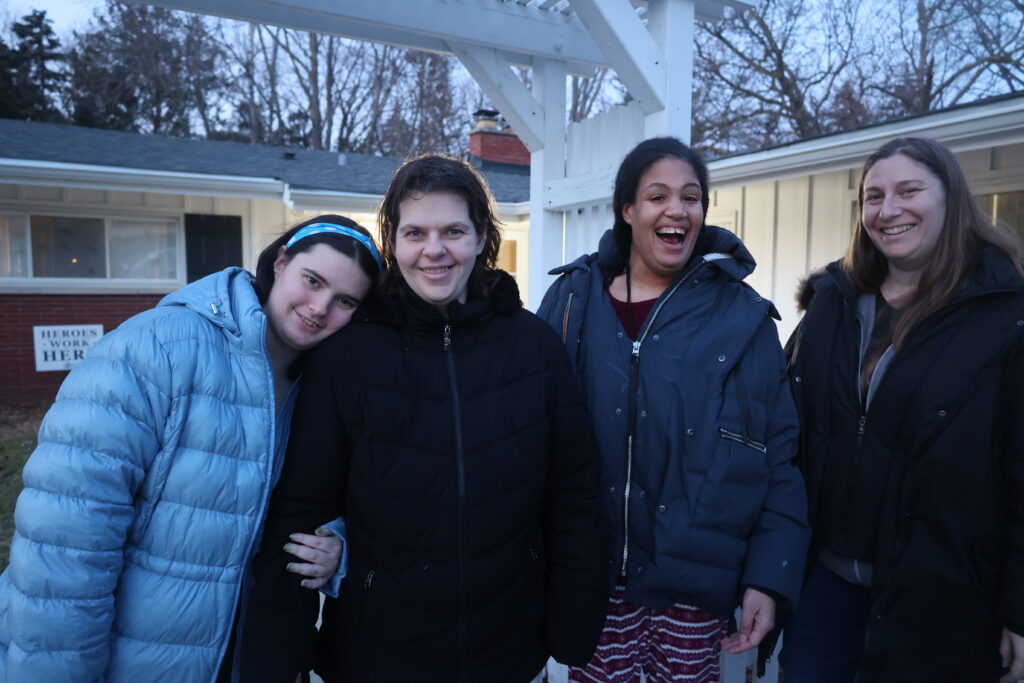For the women who live at the Euclid Home, Little City provides a house, but it is the people who make it a home.
And when housemates come together, they become family through communication. The women of the Euclid Home discovered that in 2023, participating in a program that involves Little City’s Clinical Mental Health Coordinator Melissa Palmer holding weekly group therapy sessions in the home to improve communication, relationships, and support systems.
The Euclid Home has some of Little City’s most active residents in Amanda, Ola, Jodi, Chrissy, and newcomer Katie. While all the women are friends, they all have their own schedules and are involved in everything from working at the coffee cart to participating in talent shows.
Melissa said that, with all different goals, schedules, and communication styles, coming together is an important way for the group to strengthen relationships and ensure everyone feels heard and supported in the home.
“The residents and staff at Euclid Home are setting new standards and expectations for themselves and each other,” Melissa said. “They’re really creating a collaborative approach to problem solving and meeting needs both individually and as a team. It’s been great to see how close they’ve become.”
This work happens throughout many of Little City’s 16 Community Integrated Living Arrangement (CILA) homes and the group therapy sessions can be arranged for a variety of reasons. For example, having a new resident move in, like Katie at the Euclid Home, can be a reason to start group sessions, while other times it may be life changes such as a new job, a new schedule, or changes in physical needs for residents.
Regardless of the reason, the weekly visits have helped strengthen relationships between residents and among the Direct Support Professionals who work with them in the home every day.
Melissa said that, while she cannot share details to protect the privacy of the group, the women at the Euclid Home have taken respect and support to a whole new level. Even simple things such as household chores have become examples of consideration and support among the group.
Routine is important for anyone, but especially people with developmental disabilities. The group has gotten so good at respecting routine that they know each other’s preferred times to do laundry or take a shower. Even these simple things can strengthen the bond between housemates.
For Ola, the sessions have been another way to spend time with some of her favorite people.
“I love living here with my friends,” Ola said. “We have fun.”
While the group has already made incredible strides, Melissa said the weekly meetings can continue for as long as they wish. With more homes using the service, she said it is just another way Little City is putting mental health at the forefront for residents and participants.
“Mental health is important for everyone, especially people who don’t always feel heard and don’t always know how to advocate for themselves,” Melissa said. “We’re really focused on that need not just in the homes but in our programs, too, and we will continue to integrate that more and more into all that we do.”



